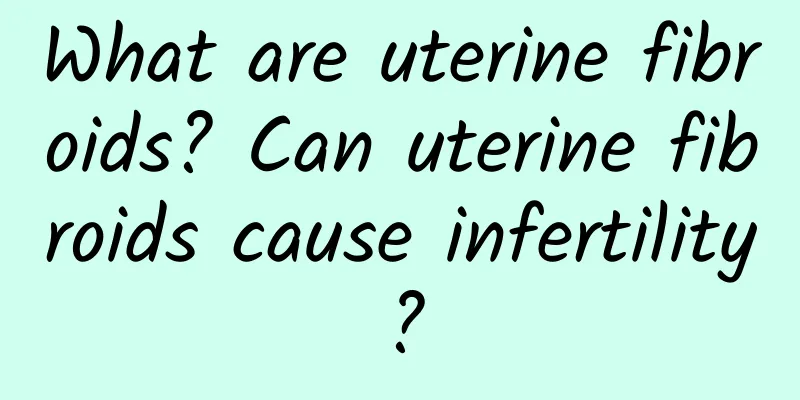When your period is about to "leave", your body will give you 5 tips to help you safely and smoothly go through menopause

|
Ms. Li, 47 years old, sat in the chair opposite me with a worried look on her face. "Doctor, my menstrual cycle has become very irregular in recent months. Sometimes it comes twice a month, and sometimes it doesn't come at all. And the amount of each time is sometimes more and sometimes less. What's going on?" She said with a hint of uneasiness. I smiled and comforted her: "Ms. Li, what you describe is likely a sign of premenopause. As you age, the function of the ovaries will gradually decline, causing fluctuations in hormone levels in the body, which will affect the menstrual cycle. However, this is just one of the many clues that the body is preparing to enter menopause." In order to help Ms. Li better understand her physical changes, I continued to explain the other four important signs of premenopause: Hot flashes and night sweats: This is the most common symptom, and many women will suddenly feel hot all over their body, especially in the face and upper body, for no apparent reason, which may be followed by sweating. This feeling may last from a few seconds to a few minutes, and sometimes even affect daily life and work. Mood swings: Hormonal changes can also affect mood, leading to symptoms such as irritability, anxiety, or depression. These mood swings can leave women feeling confused and helpless because they may not know why they are reacting the way they are. Sleep disorders: Hot flashes and night sweats may disrupt your sleep quality at night, causing insomnia or excessive dreaming. Long-term lack of good sleep will affect physical health and quality of life. Vaginal dryness: A drop in estrogen levels can cause the vaginal walls to thin and lubricate, which may make intercourse painful or uncomfortable. This situation not only affects sex life, but may also cause women to resist intimate contact. Ms. Li nodded thoughtfully and asked: “So what can I do to alleviate these symptoms?” I told her that first of all she should maintain a healthy lifestyle, including a balanced diet, moderate exercise and adequate sleep. In addition, psychological adjustment is also very important, and stress can be relieved through meditation, yoga and other methods. If symptoms are severe, hormone replacement therapy or other medications may also be considered. To further help Ms. Li, I detailed the coping strategies for each symptom: Hot flashes and night sweats: Wearing breathable cotton clothing, avoiding spicy foods and alcohol, and keeping the indoor temperature comfortable can effectively alleviate these symptoms. Mood swings: Participate in social activities, maintain positive social relationships, seek support from family and friends, and seek help from a counselor if necessary. Sleep disorders: Establish a fixed sleep habit, create a quiet and comfortable sleeping environment, and avoid caffeine and blue light stimulation from electronic screens at night. Vaginal dryness: Use water-soluble lubricants, maintain vaginal hygiene, and use topical estrogen therapy if necessary. Ms. Li expressed her gratitude after hearing this. She said: “Thank you, doctor, for your patience. I now have a better understanding of my body and a strategy to deal with it. I will follow your advice and hope to get through this stage smoothly.” Before saying goodbye to Ms. Li, I emphasized an important point of knowledge: Menopause is not the end of life, but a brand new beginning. It is a natural stage in a woman's life that brings some challenges, but it also opens a new chapter in taking care of your health. As a doctor, I hope that every woman can be like Ms. Li, actively face the changes in her body, take scientific methods to manage menopausal symptoms, and enjoy a more colorful life. Dear readers, if you or your loved ones are experiencing similar symptoms, please remember that these are signals from the body to remind us to pay attention to our own health. Do not hesitate to consult our professional doctors in time. Let us greet every turning point in life with a healthier and more confident attitude. 【Menopause Science】 Menopause usually occurs between the ages of 45 and 55 and marks the gradual decline and complete cessation of a woman's reproductive function. During this period, in addition to the symptoms mentioned above, attention should also be paid to bone density examinations and cardiovascular health monitoring, because postmenopausal women are at an increased risk of osteoporosis and cardiovascular disease. Maintaining regular medical checkups and health consultations is an important step in maintaining overall health. In addition, menopause is also a period of increased risk of breast cancer and endometrial cancer, so regular breast examinations and gynecological examinations are particularly important. Meanwhile, maintaining a healthy weight and avoiding smoking and excessive alcohol consumption can help reduce these risks. Finally, I want to say that menopause is a natural process that every woman will go through. It should not be regarded as a pathology or the end of life. Instead, it is an opportunity for us to re-examine our lifestyle, adjust our pace of life, and pay more attention to physical and mental health. With the right knowledge and positive actions, we can gracefully welcome this new chapter of life. In this period of change, every woman deserves the best care and support. As a doctor, I will always be here to provide you with professional guidance and warm company. Follow me, let us walk hand in hand, and explore the infinite possibilities of health and happiness together on the journey of menopause. |
<<: Does smoking have a big impact after abortion?
>>: What causes chronic cervicitis?
Recommend
Can I exercise if I have cervicitis?
Cervicitis is a common type of gynecological geni...
What is the situation of irregular menstruation and yellow leucorrhea
Irregular menstruation and yellow leucorrhea may ...
Relieve stress and lose weight! Supermodel Wang Liya talks about the 6 benefits of exercise
Exercise can make the body healthier, help firm t...
What are the reasons for irregular menstruation in women? Two major factors can easily cause irregular menstruation
Menstrual disorders, also known as irregular mens...
What is the TCM name for uterine leiomyoma? What is uterine leiomyoma?
Uterine leiomyoma is a common gynecological disea...
What are the main causes of adnexitis?
Among all kinds of gynecological inflammation, ad...
What are the effects of hysterectomy for adenomyosis?
Hysterectomy for adenomyosis can cause women to l...
Learn more about the complications of ovarian cysts
Among gynecological diseases, there is a disease ...
How to prevent leakage during abortion
Missed aspiration is one of the possible complica...
Three common causes of uterine fibroids and postoperative care for uterine fibroids
Uterine fibroids are one of the most common benig...
How should women recover after abortion? There are 7 major hazards of abortion for women
Nowadays, the number of cases of painless abortio...
Women should be alert to pelvic inflammatory disease during the postpartum period
Women are weak after childbirth, and the cervix f...
Important symptoms of vulvar leukoplakia
Vulvar leukoplakia is a type of gynecological dis...
Do you know all this knowledge in the uterus pictures? You may not know this knowledge
Many people do not know much about endometrial th...
What are the symptoms of candidiasis vaginitis
If you suspect you have candidiasis, you should s...









